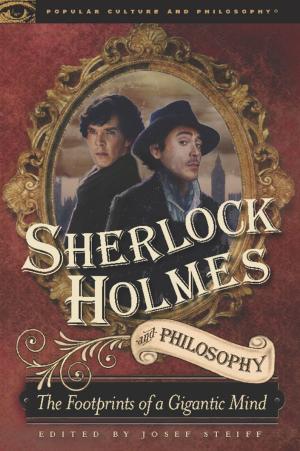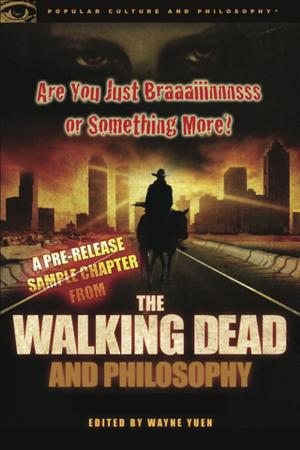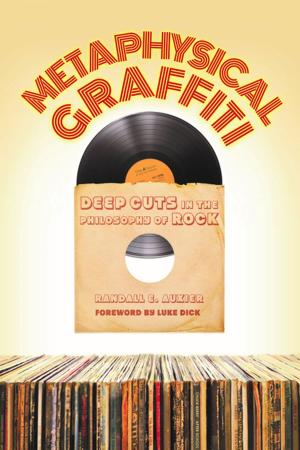| Author: | ISBN: | 9780812698398 | |
| Publisher: | Open Court | Publication: | August 19, 2013 |
| Imprint: | Open Court | Language: | English |
| Author: | |
| ISBN: | 9780812698398 |
| Publisher: | Open Court |
| Publication: | August 19, 2013 |
| Imprint: | Open Court |
| Language: | English |
From Machiavellian city officials to big time mobsters (such as Arnold Rothstein, Lucky Luciano, and Al Capone) to corrupt beat cops to overzealous G-men to suffragettes to abolitionists to innocent citizens caught in the crossfire, Boardwalk Empire is replete with philosophically compelling characters who find themselves in philosophically interesting situations.
As Boardwalk Empire is based on historical events, political figures and mobsters, the philosophical issues raised bear on real life” in the way the few fictional television shows and movies do. We see parallels with the events in Boardwalk Empire and contemporary political events, and between the characters in Boardwalk Empire (good, bad, and ambiguous) and contemporary figures. It is one of the most popular HBO television shows ever and its popularity is on the rise.
In this volume, twenty philosophers address issues in political philosophy, ethics, aesthetics, feminism, and metaphysics. Gregory Littman analyzes Nucky Thomson as a Machiavellian Prince. In contrast, Richard Greene casts Thomson in the role of a Nietzschean superman. Michael Da Silva looks at the complex relationship between Nucky and Jimmy (Nucky’s young protégé). Jimmy feels resentment towards Nucky for the role he played in bringing together Jimmy’s father and his very young mother. Is this resentment justified given that Jimmy would never have come into existence had his parents not met? Is there a moral difference between the harm that Nucky allowed to happen and the direct harm caused by Jimmy’s father? Don Fallis considers the ethics of lying in the seedy world of bootlegging. Agent Van Allen’s unique religious attitudes bring a warped sense of morality to the Boardwalk universe. Roberto Sirvent brings to light the moral character of Van Alden’s God. Thomson advises to never let the truth get in the way of a good story.” Rod Carveth explores the role that storytelling pays in the series and Cam Cobb illustrates the role of deception. Pat Brace and Maria Kingsbury address Outsiders, Alcohol and All That Jazz”-the aesthetics of Boardwalk Empire and the prohibition era. Margaret Schroeder is used as a vehicle for the female voice of the era. Rachel Robison-Greene discusses the role that gender plays in the direction of the series. Ron Hirschbein lends a Freudian Analysis.
This book is directed at thoughtful fans of Boardwalk Empire. It’s the only book to address the popular show from a thoughtful yet instantly readable perspective.
From Machiavellian city officials to big time mobsters (such as Arnold Rothstein, Lucky Luciano, and Al Capone) to corrupt beat cops to overzealous G-men to suffragettes to abolitionists to innocent citizens caught in the crossfire, Boardwalk Empire is replete with philosophically compelling characters who find themselves in philosophically interesting situations.
As Boardwalk Empire is based on historical events, political figures and mobsters, the philosophical issues raised bear on real life” in the way the few fictional television shows and movies do. We see parallels with the events in Boardwalk Empire and contemporary political events, and between the characters in Boardwalk Empire (good, bad, and ambiguous) and contemporary figures. It is one of the most popular HBO television shows ever and its popularity is on the rise.
In this volume, twenty philosophers address issues in political philosophy, ethics, aesthetics, feminism, and metaphysics. Gregory Littman analyzes Nucky Thomson as a Machiavellian Prince. In contrast, Richard Greene casts Thomson in the role of a Nietzschean superman. Michael Da Silva looks at the complex relationship between Nucky and Jimmy (Nucky’s young protégé). Jimmy feels resentment towards Nucky for the role he played in bringing together Jimmy’s father and his very young mother. Is this resentment justified given that Jimmy would never have come into existence had his parents not met? Is there a moral difference between the harm that Nucky allowed to happen and the direct harm caused by Jimmy’s father? Don Fallis considers the ethics of lying in the seedy world of bootlegging. Agent Van Allen’s unique religious attitudes bring a warped sense of morality to the Boardwalk universe. Roberto Sirvent brings to light the moral character of Van Alden’s God. Thomson advises to never let the truth get in the way of a good story.” Rod Carveth explores the role that storytelling pays in the series and Cam Cobb illustrates the role of deception. Pat Brace and Maria Kingsbury address Outsiders, Alcohol and All That Jazz”-the aesthetics of Boardwalk Empire and the prohibition era. Margaret Schroeder is used as a vehicle for the female voice of the era. Rachel Robison-Greene discusses the role that gender plays in the direction of the series. Ron Hirschbein lends a Freudian Analysis.
This book is directed at thoughtful fans of Boardwalk Empire. It’s the only book to address the popular show from a thoughtful yet instantly readable perspective.















